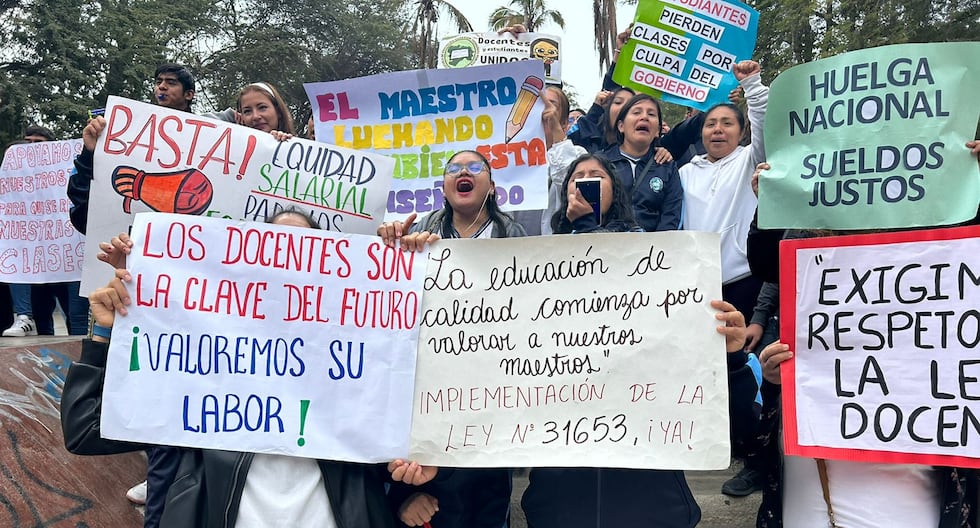L
the Jacksonian era (whose name comes from President Andrew Jackson who governed the United States from 1829 to 1837) brought with him, among many democratizing reforms, the election of judges. The idea that has been discussed in Mexico in recent years has its antecedents in that political and even religious movement of its northern neighbor. The aristocrats depicted Jackson as a donkey because they associated him with the ignorance of the common people. Since then, that donkey has been the symbol of his party, the Democrats. When he was elected, the press called him Your Majesty, The Mob
Jacksonism was a popular movement that democratized American democracy, that is, that of white men. The number of reforms is almost descriptive: suffrage was no longer exclusive to property owners and taxpayers; the secret ballot was instituted; the nomination of party candidates was opened to popular vote and universal education was proposed; but also the movements in the North led by feminists, the penitentiary reform that rehabilitated criminals, the abolition of debt as a cause for imprisonment, care for the disabled and a new way of treating insanity. Of course, the Jacksonians were also expansionist, anti-immigrant, and were not friends of African Americans or of the Indian communities that they forcibly relocated to the West. The idea of invading Mexico was hatched within them.
By the time Alexis de Tocqueville arrives as public prosecutor, on his first trip to the United States to evaluate its penitentiary system, he encounters this contradictory popular movement. The Frenchman condemns the so-called tyranny of the majority
because he is surprised that the Legislative, Executive, and Judicial branches pay attention to public opinion: I know of no country where there is generally less independence of spirit and true discussion than in North America.
. Then he will replace his fears while writing the second volume of Democracy in Americatoward administrative despotism
that is, bureaucracy. He despised Andrew Jackson because he never understood how he had majority approval if he had only won, as a general of the militia, the battle of New Orleans. He had his doubts about the election of judges, which is a legacy from 1845 of the Jacksonian movement in 24 of the 34 states of the union: The United States government is not a federal government. It is a national government with limited powers. The courts are elected and there is no Supreme Court.
.
Since then, the debate has always been the same: in favor of democratic election, judges and their decisions would have greater confidence from citizens and justice officials would be more accountable to their constituents through representation. In addition, an elected judiciary would be more independent than an appointed one because the questions of who nominated or financed them would not be a determining factor. Tied to no parties or interest groups, these elected judges would exercise a more effective restriction on the entire power of the government and the oligarchs. In Jacksonian times, it was said that, by representing a consensus, both the Legislative and Judicial branches would have fewer clashes. As Andrew Jackson said at the time: Periodically a republic should have a meaningful debate about the general direction of the courts and the role of individual judges in contributing to that direction.
The election of judges was seen as a matter of democracy, not a matter of law.
But the reform we are witnessing today is not a full democratization of the Judiciary. In reality, it is what was known in the United States as mixed origin
that is, a method that mixes both a commission that evaluates the merits of the lawyers who want to be judges with a popular election. In the Mexican case, due to all the uneasiness that exists in the confusion of the opposition between political
and electoral
Where the former is a method, while the latter is an ideological organization, a public draw has been placed between the evaluation commission and the ballot boxes, to avoid any link to a political party or interest group. Despite this, opponents of the reform still insist that popular democracy and judicial independence contradict each other. It is as if an election tied sentences to a mandate that we still do not know which case they are about. It is like speculating about a future that has not yet occurred. Instead, what we have now are sentences in favor of not paying taxes or unfreezing drug dealers’ accounts, protecting foreign electric companies from paying for state services or polluting mines or cases of outright corruption that we already know the Judiciary will issue. There is no contradiction between democracy and independence, since the popular mandate is that it be resolved thinking about the general direction of the republic
–as Jackson would say– to which all powers must be subject, including the courts. No more.
Alexis de Tocqueville had been a public minister at Versailles from an early age because of his family’s aristocratic connections. His closest friend, Gustave de Beaumont, with whom he planned Democracy in Americadescribes it like this: He had not obtained his greatest successes from the people, although he never lacked the suffrage of the elite.
Alexis himself resigned from the magistracy under a political argument: I live so far outside of society that I am terrified of becoming a legal machine, like most of my colleagues, incapable of judging a great movement, although very apt at deducing a series of axioms and finding analogies and contradictions. I would rather burn my books than get to that point.
. Amidst all the doubts and inconsistencies, a phrase still resonates that the current ministers of the Supreme Court would do well to consider: The judiciary delays the people, but cannot stop them
.
















